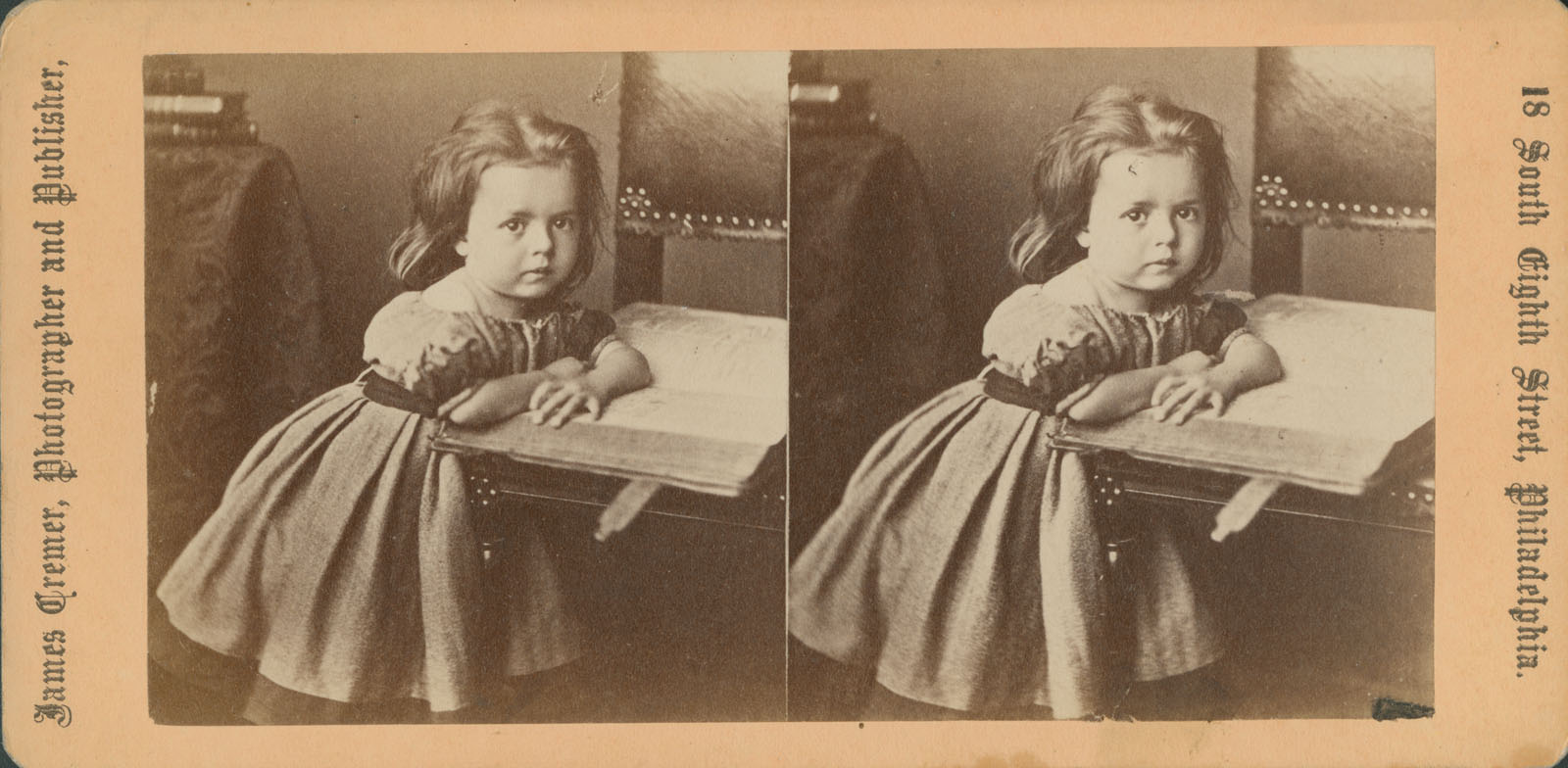Seminar Structure and Outline
“A Reading Party,” inGodey’s Lady’s Book 33 (1846): plate opposite p. 145.
Young girl leaning on book on chair. James Cremer. Philadelphia: 1868. Stereograph. Albumen print. Gift of Jane Carson James.
Seminar participants will meet Monday through Thursday mornings for three hours of lecture and discussion of scholarly readings. Afternoons and Fridays will be dedicated to close readings and analysis of primary documents, research in the Library Company collections, and site visits. Afternoons will be dedicated to close reading and analysis of primary documents and research in the Library Company collections. The seminar director will meet individually with participants to assist them in developing projects that will be directly relevant to and appropriate for their own classroom practice. There will be two local historic tours as well as an afternoon session devoted to discussion of the Seneca Falls Women’s Rights National Historic Park; taxis will be available for those who choose not to walk to those sites. During weeks two and three, an evening lecture at the Library Company will include both the participants and the public. The director will give brief lectures to help frame documents and scholarly readings, will guide participants’ discussion of the readings, and will meet individually with participants to discuss their own research projects. Participants will be expected to read approximately 250 pages per week (secondary and primary sources combined), and will be asked to keep a journal of informal essays on seminar activities; readings will be made available to all participants as both books and a photocopy packet at the start of the seminar.
An important component of this seminar will be the opportunity for participants to develop their own research and curriculum ideas by using afternoon hours to explore the Library Company’s vast resources in the history of women in the early Republic. During the first week, Cornelia King, Curator of Women’s History at the Library Company, will introduce seminar participants to the holdings of the Library Company. Each participant will, in consultation with the seminar director, develop a final project that can include a teaching unit, a research proposal, or a report to their colleagues at their home institutions about the seminar experience; these projects can, in some circumstances, be collaborative. Participants will discuss these projects at the final session of the seminar and will share them, as well as other curriculum resources, on our website.
Click on the links below to view the outlines for each week of the seminar:
(These links are also found in the main menu at the top of this page below Seminar Structure and Outline.)
Week One
Week Two
Week Three
Any views, findings, conclusions, or recommendations expressed in this program do not necessarily represent those of the National Endowment for the Humanities.



